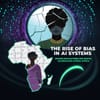The rapid adoption of artificial intelligence (AI) in Africa is raising concerns about bias and digital colonialism. As AI systems become more pervasive, they often reflect the cultural, social, and economic contexts in which they were developed, which can lead to biased outcomes.
In Africa, biased AI systems can perpetuate existing power dynamics, where Western perspectives and interests dominate the development and deployment of AI solutions. This can result in AI systems that fail to account for local contexts, cultures, and needs, ultimately exacerbating digital colonialism.
The implications of biased AI systems in Africa are far-reaching. For instance, AI-powered decision-making tools can perpetuate existing social and economic inequalities if they are trained on biased data sets. Moreover, the lack of diverse and representative data sets can lead to AI systems that are not tailored to African contexts, further marginalizing local communities.
To mitigate these risks, it's essential to develop AI systems that are transparent, explainable, and fair. This requires a multidisciplinary approach that incorporates diverse perspectives, including those from local communities, policymakers, and experts in AI ethics. By prioritizing inclusivity and fairness in AI development, we can work towards creating more equitable AI systems that benefit African communities and promote digital sovereignty.


